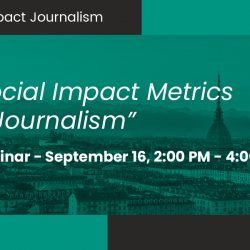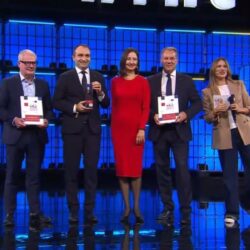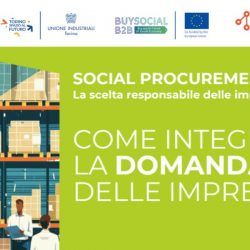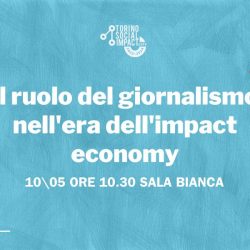The I3S Project accelerates awareness and skills of Third Sector organisations in driving digital transformation
Are new skills needed to contribute to the digital transformation of the third sector? Apparently so!
Thanks to the I3S project, the Fondazione Piemonte Innova has identified the professional figures, with business and social skills, that are increasingly indispensable for third sector organisations interested in activating a strategic path to increase the digital skills of their organisation, including through the acquisition of young and ‘smart’ figures.
There are ten job descriptions identified by the study, which belong to four areas of specialisation:
- Operations and Service Delivery
- Knowledge & Expertise
- Communication
- Sustainability
Let’s find out what they are:
Operations and Service Delivery
Reverse Mentors
They are young people, possibly digital natives, with a good general command of digital technologies and specifically of the company’s enabling digital tools (PCs, Macs, Office 365, Google Workspaces, MS Teams, etc.).
Work alongside a senior figure with extensive experience, so as to encourage cross-fertilisation during daily work. They help colleagues to make better use of the available tools, gradually modifying work processes and solving the simplest problems, providing services such as proximity IT support.
Innovation Manager
Works as an employee or consultant of the organisation. He/she interfaces with the managers of all the organisation’s sectors in order to identify the innovations considered strategic for the organisation, acknowledging the needs of the reference context and identifying functional development processes to set up the progressive advancement of technological and digital transformation.
The Innovation manager promotes solutions and methodologies that foster cultural change in the company. He initiates paths of transformation in transversal areas, capable of bringing out new perspectives and opportunities for the organisation. He does not merely learn about new technologies, but builds competitive innovation projects that take into account the integration of technologies with other relevant factors: sustainable innovative technological solutions, the organisation’s digital maturity, strategic objectives and constant updating.
UX Designer
He is primarily concerned with designing, drawing and implementing the graphical interface of digital products, such as applications, software, social profiles or websites. His aim is to ensure the best possible user experience: intuitive, easy and accessible.
The UX Designer is concerned with studying the motivations that drive users to use that particular product/service, analysing their expectations and searching for appealing and efficient graphical solutions.
He studies the behaviour, the needs of the users and the objective of the product/service and of the organisation, always using a people-centred design approach (human-centred design), helping to provide products that are functional, with a high level of usability and aesthetically pleasing. In addition to collaborating with engineers to implement the tool, the UX Designer continues to gather feedback on the final product, working on its improvement and continuing to identify new solutions to optimise user experience and user satisfaction.
Service Designer
Expert in the design and improvement of sustainable processes, resources and services. He/she always keeps people’s needs in mind, considering both the end users and the staff and organisation delivering the service.
The service designer must be able to analyse the context in which he intervenes from different points of view, optimising it as a whole. Points of particular attention may be the definition of the touchpoints, both physical and digital, the systems, infrastructures and processes on which the service relies.
He has similar characteristics to those of the UX designer, but intervenes when a long-term strategic vision is needed in projects, and integration with other services and processes. For this reason, it is essential that he can understand the context in a holistic manner.
Knowledge & Expertise
Digital Educators and Psychologists
They are figures with digital knowledge and skills, able to use current technologies in the specific professional activities of Educators and Psychologists such as E-Therapy, E-learning, virtual reality as functional support (education, meditation, etc.).
They know and are able to use technological tools in prevention, treatment and rehabilitation activities of individuals, including fragile targets and communities, and neuromarketing. They understand the dynamics related to social media, video and serious games, digital learning (blended teaching), biofeedback and neurofeedback.
Digital educators and psychologists are experts who are able to use innovative tools and new forms of technology in educational, clinical-therapeutic and rehabilitation settings. They are able to orientate themselves in the digital and social networking world; they have knowledge useful for a new educational setting of e-learning, and therapeutic setting of e-therapy, individual or group.
Researcher Digital / Humanities
A student or doctoral candidate in ‘humanities informatics’, the science that deals with the connection between the humanities and information technology. More precisely, he applies information technologies in the humanities.
Designs and implements basic or applied research activities in order to investigate specific areas of expertise. Conducts systematic and rigorous experimentation of innovations, both in the laboratory and in the field, while advancing the ETSs’ awareness of technology and the quality of their activities. Analyses qualitative-quantitative data and documents activities and results with scientific dissemination and communication activities. Maintains relations and facilitates exchange between experts and academics and the Third Sector.
Communication
Communication, digital relations and social media
Handles the management of social and other communication channels used by the organisation. In particular, it monitors, moderates and responds to audience comments, manages partnerships within social, creates or posts shareable videos and images, sends newsletters, updates the website.
He is also in charge of the overall communication strategy, executing digital marketing and digital fundraising campaigns and collecting and analysing data and results. He also deals with digital communications with volunteers and supporters.
People & Community Manager
Is responsible for managing the organisation’s communities, both online and offline, in order to stimulate dialogue and interactions between the organisation and all its stakeholders, increasing the engagement and satisfaction of volunteers, employees and service users. Has an excellent knowledge of digital communication channels useful to the organisation and identifies the most suitable tools and systems to succeed in creating a comfortable environment of contact and dialogue between all stakeholders.
He manages all aspects of the relationship with staff and volunteers. In particular, it is responsible for recruiting, coordinating and enhancing the value of resources by stimulating and retaining all those who work with the organisation. It plans staff training with a view to increasing the organisation’s skills and culture over the long term, enhancing their abilities, and creating a healthy and pleasant working environment.
Sustainability
Data Analyst for impact assessment
He is in charge of designing and setting up all the tools for the collection of data relevant to the organisation along the different areas, processes and services of the ETS, their correct storage and processing from a strategic perspective in order to extract value from them.
Defines KPIs to measure the organisation’s impact and creates the respective data collection flows useful for the preparation of dashboards and automated reports, useful for the drafting of the social report and to support reporting activities.
It acts in support of all other figures and activities to optimise an effective and efficient processing and correct exploitation of the resulting data and information.
Grant Manager (Planning + Fundraising)
Is responsible for the management and diversification of funding sources, whether from design activities on funded initiatives or from fundraising activities, using all available digital tools to identify the best opportunities for the organisation and maximise the results of such initiatives.
It takes care of the processes that regulate the organisation’s interaction and relations with private and institutional donors, as well as with public administrations of reference for the co-design of services that meet the needs of the relevant territorial communities, supporting the organisation’s mission.
Job profiles
For each of these profiles, Piemonte Innova has drawn up a detailed job profile, which describes the specific skills to be possessed, what ETS needs the profile meets and the degree of social or technological orientation. An indication of the level of seniority to be sought completes the profiles.
The forms have been shared with the representative bodies that are part of the project and can be requested by writing to info@piemonteinnova.it.
What is I3S
The I3S Project promotes digital transformation and the adoption of new business models for the third sector. It is supported by the Turin Chamber of Commerce and is part of the Tech4Good programme of the Turin Social Impact strategic plan, which also acts as director. It is led by Piemonte Innova, which also coordinates and enables the network of enterprises and experts. It is conceived and realised in collaboration with the representative bodies that adhere to the Social Entrepreneurship Committee: Confcooperative Piemonte Nord, Legacoop Piemonte and VOL.TO Volontariato Torino.
Popular
 “Metrics of social impact in… 1 August 2024
“Metrics of social impact in… 1 August 2024  Turin is the 2024 European Capital of Innovation (iCapital) 14 November 2024
Turin is the 2024 European Capital of Innovation (iCapital) 14 November 2024  “Foundations and Principles of Solutions… 27 May 2024
“Foundations and Principles of Solutions… 27 May 2024  Webinar “Fundamentals and principles of… 17 May 2024
Webinar “Fundamentals and principles of… 17 May 2024  Social Procurement, the Responsible Choice for… 24 May 2024
Social Procurement, the Responsible Choice for… 24 May 2024  Salone del Libro 2024: Guests of the Event… 24 April 2024
Salone del Libro 2024: Guests of the Event… 24 April 2024 

